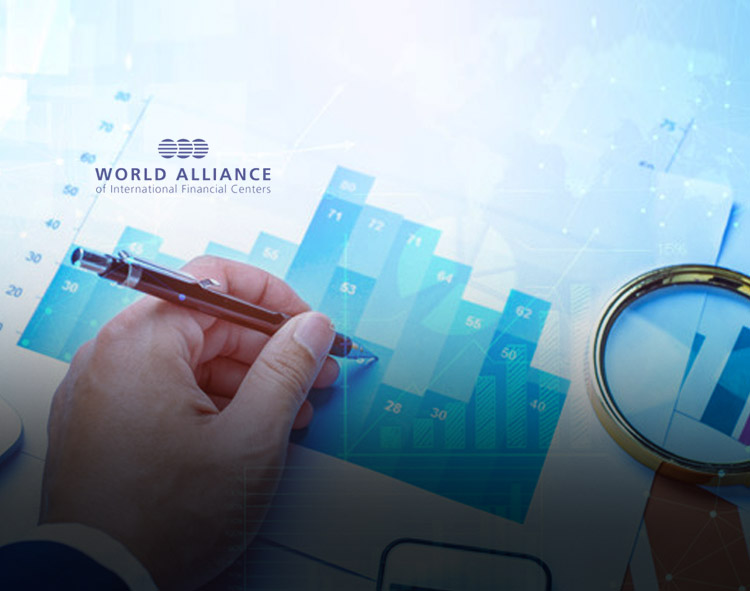The World Alliance of International Financial Centers (WAIFC) has released a comprehensive report entitled, ‘Innovation and FinTechs in a Post-Pandemic World,’ highlighting the significant role that innovation and financial technology (FinTech) play in the global economic recovery from the COVID-19 pandemic.
The report seeks to provide a pathway toward sustainable financial innovation development by delving deeper into how the COVID-19 crisis has reshaped financial innovation. It also explores the rise of new technologies and an accelerated phase of digitalization across the industry, as well as in what ways the FinTech industry will help in overcoming the current phase of economic uncertainty as the world prepares for a holistic recovery.
The report follows on from a joint declaration issued in May 2020 by WAIFC members, exhibiting their collective commitment to seeking ways to mitigate the pandemic’s adverse outcomes by forming collaborative international working groups to facilitate the economic study of COVID-19. The publication is the outcome of an inclusive global survey exploring the innovation and FinTech landscape across the WAIFC-member financial centers’ regions, jointly undertaken by the Qatar Financial Centre and Luxembourg for Finance.
Commenting on the release of this landmark report, Arnaud de Bresson, Chairman of WAIFC, said:
“The present COVID-19 crisis has brought about the need to reorientate the global economic model to accelerate sustainable finance, as well as the digital and the financial innovation, which are key components to the solution of this crisis. I want to thank Qatar and Luxembourg very warmly for having produced this new WAIFC contribution on the role of innovation and FinTech in the post-pandemic economic recovery.
This report reinforces WAIFC’s role in providing added value by creating the best dialogue between international financial centers and sharing their views on the new financial innovation trends and best practices. Considering the importance of the challenges, dialogue and cooperation are crucial, even if competition can also play its role in the short term.”
Dr. Jochen Biedermann, Managing Director of the WAIFC, added:
“This year was about protecting start-ups and other financial service providers which generate innovation in finance. Now it is time to plan for the economic recovery. We strongly recommend fostering cross-border digital services in the financial industry, gaining more and more acceptance globally. I am very grateful to our members, Qatar Financial Centre and Luxembourg for Finance, for coordinating this important work that we are making public with our report.”
Read More: Global FinTech Series Interview with Gary Hagmueller, Chief Executive Officer at CLARA analytics
The report found that the impact of the COVID-19 crisis was not sector-specific but global on the financial services industry as a whole. FinTech companies had to deal with varied industry dynamics on multiple fronts, facing liquidity crises as funding sources dried up during the pandemic. Furthermore, many FinTech subsectors started to gain momentum across the world in the face of the pandemic, with payments and remittance and e-commerce getting a boost, and RegTech increasingly being seen as the best business continuity decision financial institutions can take in light of the crisis.
CEO of the Qatar Financial Centre and WAIFC Board Member, Yousuf Mohamed Al-Jaida, commented on the report, saying:
“The FinTech sector is perfectly placed to play a pivotal role in the economic recovery phase that we see unfolding. It is imperative that we all work together with our governments and key institutions to help empower FinTechs, enabling them to innovate and advance the broader financial services sector. The pandemic showed that our world needs more enduring partnerships, free flow of information and a constant exchange of innovations, which is very well embodied in WAIFC’s economic recovery initiative, and the Innovation and FinTech report specifically.”
Through the report, WAIFC members call for decision-makers to support the global innovation and FinTech sector to ensure a holistic economic recovery. The call is multidimensional and asks governments to support the short-term financial needs of existing FinTech start-ups and continue building a reliable digital infrastructure for facilitating digital financial inclusion. The members also recommend that countries globally work together towards establishing a legal framework for promoting the digitalization of financial services and developing global FinTech partnerships to allow a constant exchange of information and know-how.
Read More: The Future of Small Business Lending Is Here– And It’s Digital!
